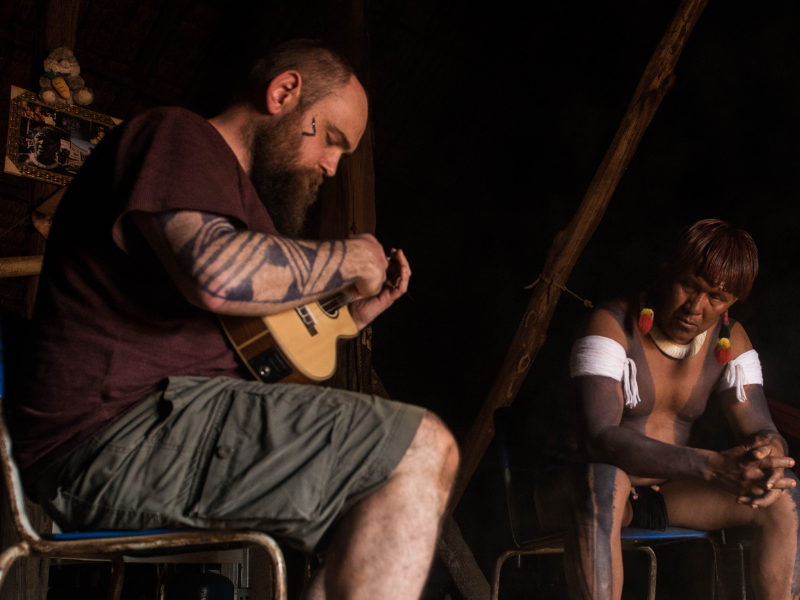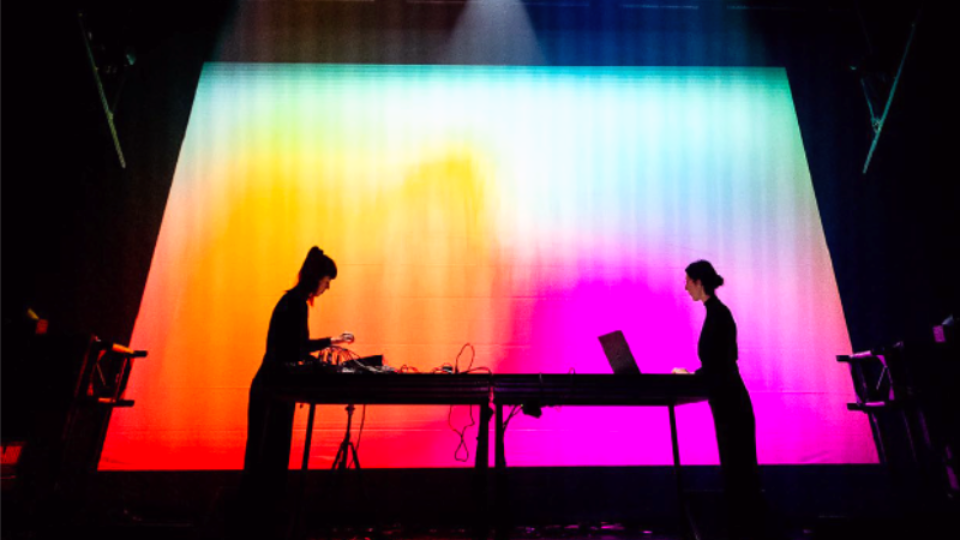We're delighted to tell you that The Hub have been appointed to undertake research – together with us, our arts teams and sector stakeholders – that can help us shape how we work in the ever changing world of music and cross-arts work.
We are ambitious in anticipating that this research will help us to identify common ground in creating a new framework for new talent development programmes that can meet cultural relations aspirations and benefit the sectors we work with. Here, our Music team Director, Joel Mills, tells the story and asks questions we hope The Hub will help us all to answer.
Talent Development – The Back Story
Over the past few years, the British Council has seen shifts and waves in styles and ways of working, but the core purpose of supporting UK arts and music sector to make international connections, to foster and forge relationships remains the same. We’ve commissioned a piece of research to explore opportunities for artists and creative producers and to scope out how we can best create programmes that bring people together to explore international experiences, build networks and foster collaboration.
At the heart of all our work are artists, creators and producers, who need room to grow, explore and develop their talents to create new work. We’ve seen a recent proliferation of artist residency opportunities and programmes supporting creative producers as a way of connecting and supporting this talent development. Our research is aimed at mapping the array of work many of our colleagues and sector contacts have been working on, giving consideration as to how we can best shape future programmes that support creating international connections while also supporting talent and professional development.
We've supported numerous programmes that bring individuals and groups of UK and international people together for artist residencies, research trips, creative producers programmes, including:
- Musicians In Residence – a programme in partnership with PRS Foundation that supported musicians to locations around the world to immerse themselves in different cultures and a different musical landscape. Each musician spent several weeks working with local musicians, performing, writing and soaking up fresh inspiration. Initially pioneered in China, residencies extended to Brazil and Russia and, during the pandemic, Musicians in Residence became digital and even more of an international exchange, with UK organisations also hosting international artists from Brazil, Egypt, Indonesia, and South Africa
- AMPLIFY Digital Arts Initiative (D.A.I) – a residency programme we launched in 2018 in partnership with Canada Council for the Arts, MUTEK Montréal, MUTEK Buenos Aires and Somerset House Studios in the UK. AMPLIFY gathered 80 women, artists and professionals to build an active network of creators working in electronic music, digital arts, sound and immersive storytelling. AMPLIFY D.A.I fostered a platform for dialogue on gender equity, capacity building, peer exchange and artistic collaboration, as well as showcasing work at contemporary festivals and residency events
- Creative Producers International – an international talent development programme created in 2016 by Watershed who gathered a cohort of 15 Creative Producers from a range of backgrounds and expertise including from contemporary art, new technology, placemaking and community engagement through to corporate collaboration, urban innovation and social activism
- Creative Producers Wider Europe – a professional development opportunity for emerging producers across Azerbaijan, Georgia, Kazakhstan, Ukraine, Uzbekistan, Turkey and Western Balkans. The programme brought a diverse cohort across disciplines together to take part in a residency to develop skills and capacity, build new networks and contribute to co-production and dissemination of professional and artistic best practice.

Above: Musicians in Residence, Brazil
These programmes all created international opportunities and valuable encounters, as well as supporting professional exchange, and the development of peer networks. Some were very music-focused and others offered inter-disciplinary experiences. Our arts ecosystem is ever evolving with increasing scope for inter-disciplinary working, exploring new ways of working, including experimentation with new technologies. One of the questions we are keen to pose is around if international residency opportunities should focus on one art form, like music, or could offer a more cross-disciplinary approach.
During the global pandemic and extended lockdown periods, digital and online working accelerated as a way of staying connected. There’s been an acceleration of how we use technology to connect but also a real appetite and appreciation for returning to face-to-face working. We recognise that ‘being physically there’ is a vital part of international experience; being in a place, meeting people in their own context, as well as absorbing the sounds, tasting the food, atmosphere first-hand are all key parts of cultural learning, exchange and experience. We recongise this but are also committed to working increasingly in a digital way. How can we combine the best elements of digital working alongside face-to-face experience, to forge a hybrid and third way?
Many sectors have seen great economic challenges and hard times, with reduced resources. How do we best design programmes that create a coherent offer to our sectors, support international connections, tangible benefits for talent and professional development, and help ferment and best support creative collaboration?
How can we create a framework for supporting talent and professional development, one that creates both a global offer, but avoids a one-size-fits-all approach that can be adapted for local context and needs? What are the partnerships we need to develop to deliver successful programmes invested in and reflecting the current sectors needs too?
I’m a great believer that we continually build on the knowledge and work of others. The programmes that we, here at the British Council, have supported and developed to date have been result of many people's work, drawing on ideas that often emerge from collaborative processes. We are never islands standing alone with our ideas but can forge new approaches from drawing on a range of expertise, experiences and diverse voices.
– Joel Mills (Director, Music)
Our previous work with The Hub
Opportunties Overseas For UK Music
You can read previous research, courtesy of The Hub, carried out several years ago into Opportunities Overseas For UK Music.


